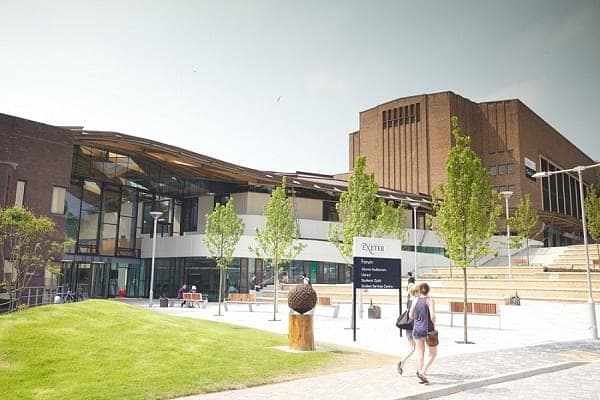Our Neuroscience degree has been carefully designed to share with you the latest ideas about how biological processes in nervous tissues enable the life we see around us, and experience ourselves.
Understanding these processes better could transform healthcare – and illuminate what it means to be human. These are substantial challenges. To meet them, we use small-group teaching throughout the course to help you develop your subject knowledge and capacity for critical thinking.
Underpinning this is our central commitment to research-engaged teaching. We do not want to simply share information with you; we want you to be part of the process of scientific discovery. This means that, alongside formal teaching sessions, we encourage you to become an active participant in our inter-disciplinary community. From the moment you arrive there are hands-on opportunities for you to do research.
If you choose the Professional Training Year for this course, it will take place between your second and third (final) year.
Year 1
The aim for the first year is to set the nervous system - the real focus of Neuroscience - in a broader biological context. We believe that this provides a genuinely secure foundation for future work.
The centrepiece of this whole-human approach is the Integrated Human Physiology module, which explores topics such as respiration, metabolism and digestion, and the immune system. The relationship of these systems to the nervous system is emphasized throughout. Other compulsory modules, which have all been revised to introduce additional material of particular interest to those studying neuroscience, include: Medical Cell Biology, Chemistry of Life, and Introduction to Genetics.
In terms of specific Neuroscience content, the Introduction to Neuroscience module introduces key knowledge related to the form and function of nervous systems. It has a particular focus on how signals pass within and between nerve cells, but also considers how nervous systems develop, and the most important anatomical features of their mature form. The Methods in Neuroscience module provides you with the practical and theoretical grounding needed to begin to appreciate contemporary neuroscience research in context.
You will also be enrolled in the zero credit “Academic Support and Development” module (NEU1095) as a compulsory requirement. During this module you will receive regular academic support from a tutor and begin to develop a personal development portfolio.
Compulsory modules
- Methods in Neuroscience
- Integrated Human Physiology
- Introduction to Neuroscience
- Introduction to Genetics
- Medical Cell Biology
- Chemistry of Life
Year 2
During the second year compulsory modules are dedicated to Neuroscience. Building on the solid foundation built in the first year, the Advance Methods in Neuroscience module enables you to take the next steps in developing your skills and knowledge to understand contemporary neuroscience research. The Neuropharmacology module explores the role of receptors by examining how drug-induced changes in signalling lead to changes in physiology and behaviour – with both beneficial and detrimental consequences for human health. A key part of this is exploring why some substances that were historically used as therapeutics are now used recreationally. Alongside this, the Neural Circuits module considers how the electro-chemical interconnections between cells, which are both extensive and intensive, hold a key to understanding the operation of nervous systems. This module examines in detail our current understanding of neural circuits, placing in a clear contemporary context many of the cell-types and basic principles which you encounter in the first year. Thus, you study how circuits become connected, can be studied, and may dysfunction in disease.
Importantly, this stage of study also offers opportunities to complete additional optional Neuroscience or Medical Sciences modules according to your individual interests.
Students will also be enrolled in the zero credit “Academic Support and Development” module (NEU2095) as a compulsory requirement. During this module students will receive regular academic support from a tutor and continue to develop their personal development portfolio.
Compulsory modules
- Advanced Methods in Neuroscience
- Neural Circuits
- Neuropharmacology
Year 3
- Neuroscience Research Project
- Frontiers in Neuroscience
